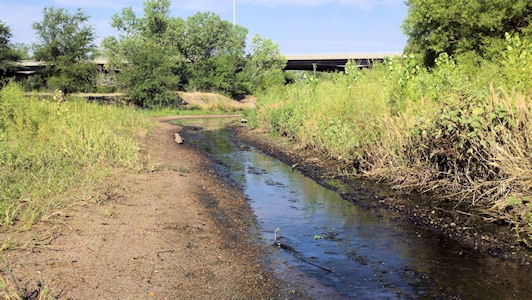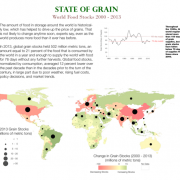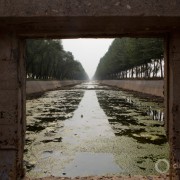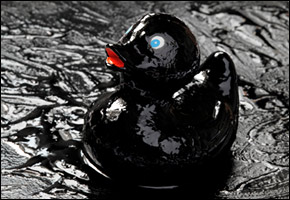Study: Freshwater Food Webs Hit Hard by Drought
A new report out of the United Kingdom’s academic world concludes that droughts can cause sharp declines in the number of species in a stream. Additionally, there is the potential for partial collapse of aquatic food webs.

The University of Birmingham recently released a new study — the findings of which have been published in the Nature Climate Change journal — that links drought with the health of freshwater ecosystems. These results come at a time when much of the Midwest United States is still suffering from a historic drought, with stream and river levels dropping to near record lows.
Furthermore, other regions of the world, from Spain to India to the Balkans, have had their own share of abnormally dry weather this year.
While these droughts have strongly affected agricultural harvests and energy production in the United States and around the world, the study suggests that they have also done great harm to freshwater ecosystems. Moreover, current climate change trends and the overuse of water for municipal, industrial, and agricultural purposes are expected to make future droughts more frequent and intense in river systems.
The consequence, according to the University of Birmingham’s report, could be a loss of biodiversity and the important ecosystem services that freshwater systems provide.
Freshwater ecosystems cycle nutrients, provide economically important fisheries, and help to filter and clean water. They are also among the most threatened ecosystems in the world, with more than 20 percent of the world’s known freshwater fish species already extinct, endangered, or threatened, according to a report from the World Resources Institute.
According to the new study, drought conditions can change the habitat in a river when water levels decline or flows become intermittent, thereby disrupting the species that live there, as well as the larger food web as a whole. For example, the report cites that 21 percent of species were lost overall in drought-stressed stream channels that were used in the study’s experiments. Among predator species, that number rose to a 78 percent loss, since these species are dependent upon those species at the lower levels of the food chain.
Source: Nature Climate Change; World Resources Institute
A news correspondent for Circle of Blue based out of Hawaii. She writes The Stream, Circle of Blue’s daily digest of international water news trends. Her interests include food security, ecology and the Great Lakes.
Contact Codi Kozacek








I feel that the shortage of rain is a natural thing that everyone goes through at one time or another in their lives. All you can do is move to where there is plenty of water. I know because I lived where there was very little water and we had to go along ways to get water. It was very hard work and it was something that is always on your mind. I will never live there again, I will move to where water is plentiful.